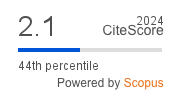System of digitizing and paying of civil status documents via an RFID card
DOI:
https://doi.org/10.4108/eetiot.10970Keywords:
RFID card, civil status documents, paying, IoT (Internet of Things)Abstract
Nowadays, with the remarkable advancement of technology in almost all fields of activity, we notice a considerable decrease in data search time. Thus we are witnessing the birth of new technologies and applications that continue to make our lives easier and in the most beautiful ways. However, the computerization of systems remains a valuable aid, particularly in the field of administrations such as civil status. At the time, before the idea of computerizing civil status in Senegal, all citizens' files were managed on paper. Which continued to create problems within these services (loss of transcription, loss of time for research), queues and jostling. We had to make an observation that all civil status documents, in any case a good number in the world are computerized so that obtaining papers has become simpler than usual while in Senegal obtaining civil status documents is generally done on paper, but there are areas where the process is digitalized. First of all, the user presents the badge or RFID card which is scanned by the RFID module and the system checks the existence of the card at the database level. Then, if the card is registered, it connects to the network in order to access the web page to enter its password. And finally the person obtains his request if the password is correct. The account is recharged manually by the platform administrator or automatically by the user via mobile money operators such as Orange money, Wave and others.
Downloads
References
[1] Zhu Zhiyuan, Tan Jie, Zhao Hongsheng, Guan Qiang and Li Na : A dynamic RFID performance test system, 2010 IEEE International Conference on RFID-Technology and Applications, 17-19 June, 2010, Guangzhou, Chine
[2] Paula Fraga-Lamas and Tiago M. Fernndez-Carams : Reverse engineering the communications protocol of an RFID public transportation card, 2017 IEEE International Conference on RFID (RFID), 9-11 May, 2017, Phoenix, AZ, USA.
[3] Siye Wang, Shaoyi Zhu and Yanfang Zhang: Blockchain-based Mutual Authentication Security Protocol for Distributed RFID Systems, 2018 IEEE Symposium on Computers and Communications (ISCC), 25-28 June, 2018, Natal, Brazil.
[4] Osman Abd Allah, Marwa Mekki, Alaa Awadallah and Suliman Abdalla: RFID based Access Control and Regis-tration System, 2018 International Conference on Com-puter, Control, Electrical, and Electronics Engineering (ICCCEEE), 12-14 Aug., 2018, Khartoum, Sudan.
[5] Han He, Xiaochen Chen, Leena Ukkonen, Johanna Virkki: Clothing-Integrated Passive RFID Strain Sensor Platform for Body Movement-Based Controlling, 2019 IEEE International Conference on RFID Technology and Applications (RFID-TA), 25-27 Sept., 2019, Pisa, Italy
[6] OUESSE M E A, Baboucar D, Mohamed S, Adrien B,Ridha B:Using an RFID card with a password to open a door, 2022; 6th International Conference on Electronics, Materials Engineering & Nano-Technology (IEMENTech), Dec. 2-4
[7] OUESSE M E A, Mohamed S, Adrien B, Ridha B: Payment of university restoration by an RFID card, 2021 10th International Conference on Internet of Everything, Microwave Engineering, Communication and Networks (IEMECON), Dec. 1-2
[8] Joseph Edmonds and Lorna Jane Mitchell: The Art of Modern PHP 8: Learn how to write modern, performant, and enterprise-ready code with the latest PHP features and practices, 2021, Packt Publishing
[9] Paul McFedries :Web Design Playground: HTML & CSS The Interactive Way,2019, Manning
Downloads
Published
Issue
Section
License
Copyright (c) 2025 Mohamed E.A. Ouesse, Diatta Baboucar, Basse Adrien, Bouallegue Ridha

This work is licensed under a Creative Commons Attribution-NonCommercial-ShareAlike 4.0 International License.
This is an open-access article distributed under the terms of the Creative Commons Attribution CC BY 4.0 license, which permits unlimited use, distribution, and reproduction in any medium so long as the original work is properly cited.




